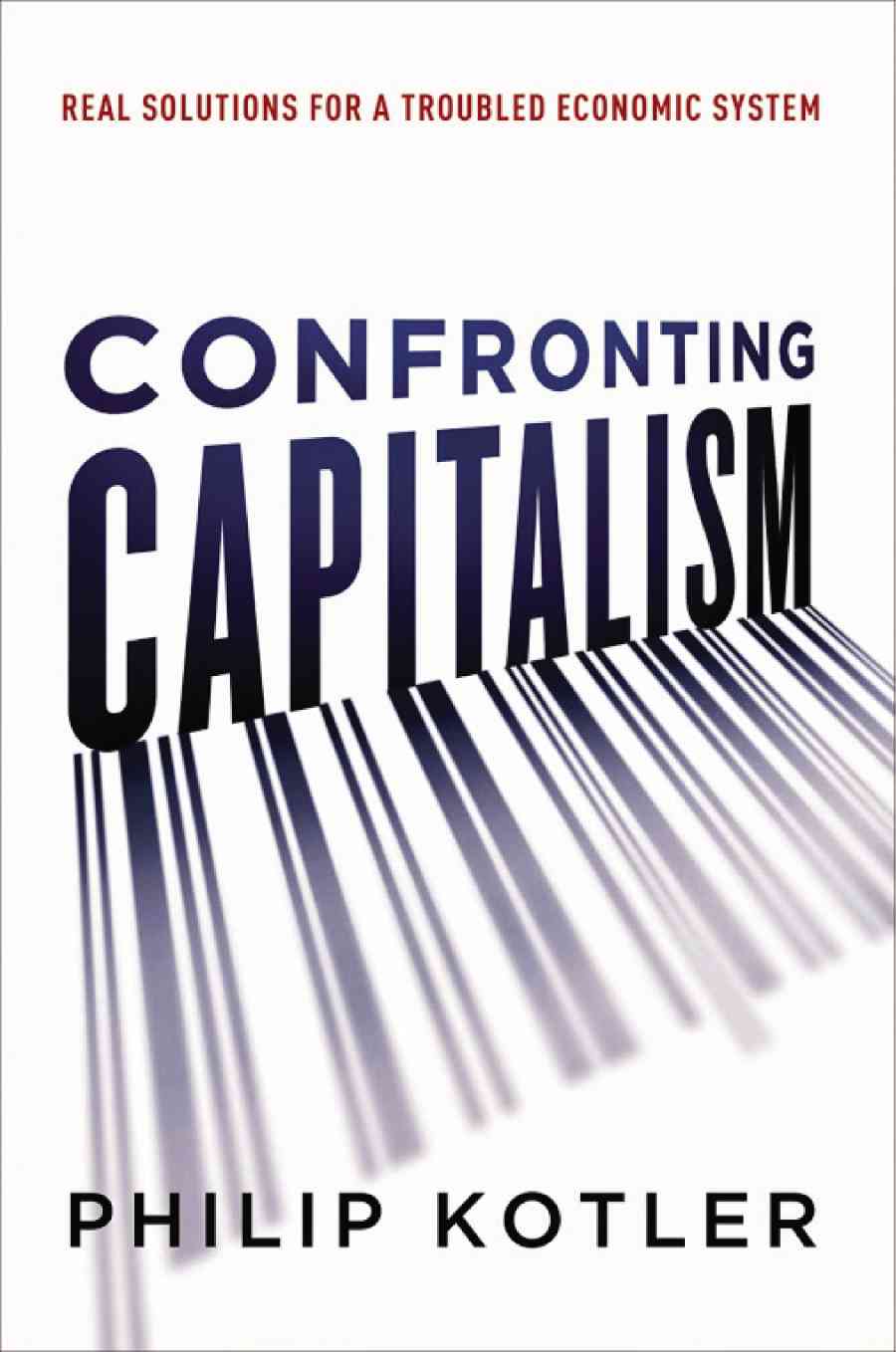Save capitalism from the politics of greed

Philip Kotler has given managers and CEOs around the world a concept of marketing management with a wide swath of subjects comprehensive enough to make CEOs and marketers succeed in the marketplace.
This celebrated author also ventured into “social marketing,” and he co-authored the famous book on the subject with author Ned Roberto, my former professor at the Asian Institute of Management.
Only a few years ago, seeing the socio-economic landscape deeply altered by the entry into—and then the reign over—an information technology-driven world, Kotler admirably admitted his error about the law of marginal utility. Why? Because IT products and services do not reach that point when it is no longer economical to produce something. The new economic truth thus explains the exponential growth of IT-driven firms.
He declared this newfound truth in a book I reviewed a few years back for the Inquirer, “Market Moves.”
Beyond marketing
This marketing guru has shown that he is not confined to marketing alone, because he can discuss the “market economy” with equal confidence and competence. Kotler seemed to have a commanding grasp of something beyond marketing, beyond selling, beyond the tension between going for market share or deciding to maximize margins.
Kotler, as proven by this newly minted book, “Confronting Capitalism,” has shown that he can tackle a subject broader and bigger than marketing products and services. He has advanced forceful arguments for restoring vigor and social value to the market economy—not a Marxist or socialist one—by first pointing out his misgivings about capitalism.
And he brings to bear his expertise in marketing to introduce fresh energy to capitalism. Through the years, in order to “save capitalism from itself”—as phrased by Kotler—this free enterprise concept has been given modifiers to its name.
Consider these attempts and so-called newfangled forms of capitalism: Compassionate Capitalism, Inclusive Capitalism, Humane Capitalism, Humanistic Capitalism, Healthy Capitalism and Neo-Capitalism.
The adjectives obviously cite the emphasis of each form of the free enterprise system.
Since Kotler ventured into “new territory”—from the point of view of students and professors of marketing—he recites his credentials as an economist:
“I am a classically trained economist who studied under three great and opposite-thinking Nobel Prize-winning economists, namely, Professor Milton Friedman of the University of Chicago, who represented free market thinking, and Professors Paul Samuelson and Robert Solow of MIT, who represented Keynesian thinking.”
His goal, he says, is to apply macroeconomic and microeconomic theory to understand company decision making aimed at winning market share in highly competitive markets.
Neglected role
He lamented that “economists have neglected the role and power of marketing to shape and influence markets.”
Then, Kotler advances his thesis: “Marketing is one of the bedrock concepts in a capitalistic society.”
Thus he lists down capitalism’s shortcomings: (1) Persistence of poverty, (2) Income inequality on the rise, (3) Workers under siege, (4) Job creation in the face of growing automation, (5) Companies not covering their “social costs,” (6) Environmental exploitation, (7) Business cycles and economic instability, (8) Dangers of narrow self-interest, (9) Debt burden and financial regulation, (10) How politics subverts economics, (11) Capitalism’s short-term orientation, (12) Questionable marketing outputs, (13) Setting the right GDP growth rate, and (14) Creating happiness as well as goods.
On the subject of persisting poverty around the world, I call to mind a great line from the inaugural speech of the late American President John F. Kennedy, who declared: “How can we save the few who are rich if we cannot save the many who are poor.”
How to lick poverty
The face of poverty around us is truly a continuing indictment of this so-called capitalism, which has concentrated 90 percent of any country’s wealth among the 10 percent elite of “filthy rich” or “lucky rich” folks.
Kotler lists down five solutions to the intractable and “shameful” poverty of people—in the midst of plenty—and one solution stands out:
“We must carefully consider whether it would make more sense for national governments to guarantee everyone a certain minimum income and do away with many War on Poverty programs that only act as bandages to slow downs the bleeding.”
The Philippines “conditional cash transfer”—or CCT—seems to show the way for poverty alleviation in the prescriptive solutions of Kotler.
Every one of the 14 chapters gives a straightforward solution to every failing of capitalism, and it points the way to CEOs and to state policy makers to pick up a few pointers on how to address every shortcoming.
In the chapter about “politics subverting economics,” Kotler takes the bull by the horns. He accepts the truism that “capitalism is the natural companion of democracy.” As I always clarify among my students, capitalism is an economic concept, while democracy is a political one; in the same way that socialism is an economic concept, and totalitarianism is a political system.
Anyway, Kotler concludes his damning charges against politics frustrating the nobler goals of enlightened capitalism with these distilled analyses: (1) the role played by lobbying, (2) the extent and high cost of bribery and corruption, (3) the need for government relations and appropriate taxing policies, and (4) dealing with the disproportionate power of the super-rich.
All through the 24 chapters, one unwanted trait of humankind has wrought havoc on the free enterprise system: “Greed.” Moderating such greed could not be left to rich families or rich countries. There must be political will to create structures and systems to have some measures of control over the “insatiable appetite” for wealth and power by those who have too much already.
Only then can the essential Adam Smith goal in the “Wealth of Nations” be an effective counterpoint to Karl Marx’s “Das Kapital.” A goal devoutly to be wished is “democratized wealth” —not “democractized poverty.”
Kotler’s book will set us into rethinking how we can prove—in our individual and national lives—that “capitalism is still better than any other system.” (For comments, contact dmv.communications@gmail.com.)
